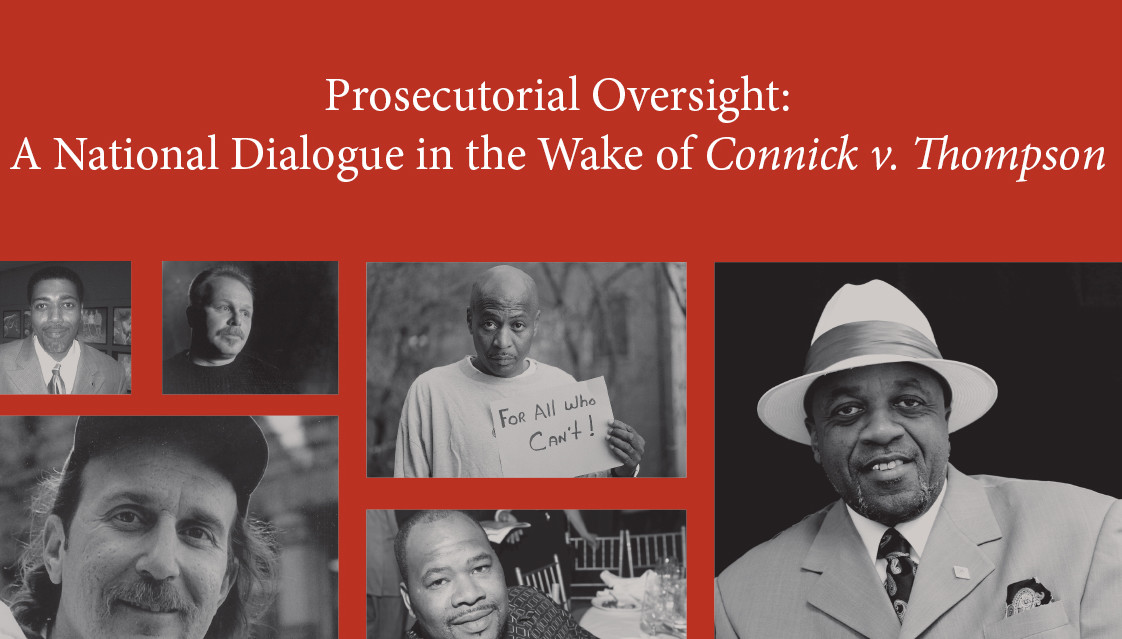Prosecutorial Oversight: A National Dialogue in the Wake of Connick v. Thompson
03.29.16
Prosecutorial Oversight: A National Dialogue in the Wake of Connick v. Thompson
In 1984, John Thompson was wrongfully convicted of two separate crimes—a robbery and murder— in Louisiana. He was prosecuted first for the robbery, which helped prosecutors secure the death penalty in his murder case. While facing his seventh execution date in Louisiana State Penitentiary at Angola, a private investigator hired by his appellate attorneys discovered scientific evidence of Thompson’s innocence in the robbery case that had been concealed for 15 years by the New Orleans Parish District Attorney’s Office.
Thompson was eventually exonerated of both crimes in 2003 after 18 years in prison—14 of them isolated on death row. The state of Louisiana gave him $10 and a bus ticket upon his release. He sued the district attorney’s office. A jury awarded him $14 million—$1 million for each year on death row. When Louisiana appealed, the case went to the U.S. Supreme Court. On March 29, 2011, Justice Clarence Thomas issued the majority 5-4 decision in Connick v. Thompson that the prosecutor’s office could not be held liable, ultimately granting prosecutors broad immunity for their misconduct.
In the wake of the Court’s decision, the Innocence Project, the Veritas Initiative at Santa Clara University, the Innocence Project of New Orleans and Resurrection After Exoneration formed the Prosecutorial Oversight Coalition to review the apparent lack of accountability for prosecutorial error and misconduct.
On the fifth anniversary of the U.S. Supreme Court’s decision in Connick v. Thompson, the coalition released available here.
Read: 2016 Prosecutorial Oversight Report
Take the prosecutorial misconduct quiz:
Leave a Reply
Thank you for visiting us. You can learn more about how we consider cases here. Please avoid sharing any personal information in the comments below and join us in making this a hate-speech free and safe space for everyone.
May 21, 2016 at 6:33 pm

What if someone is under misinformed prosecutorial misconduct? What if the person under falsely baked investigation asks for why he is being investigated or prosecuted? Would there be any possibility of genuine and transparent window to let the innocent know on why he is under inappropriate prosecutorial or investigation process?